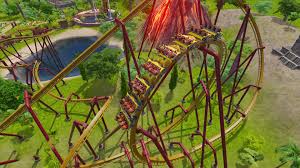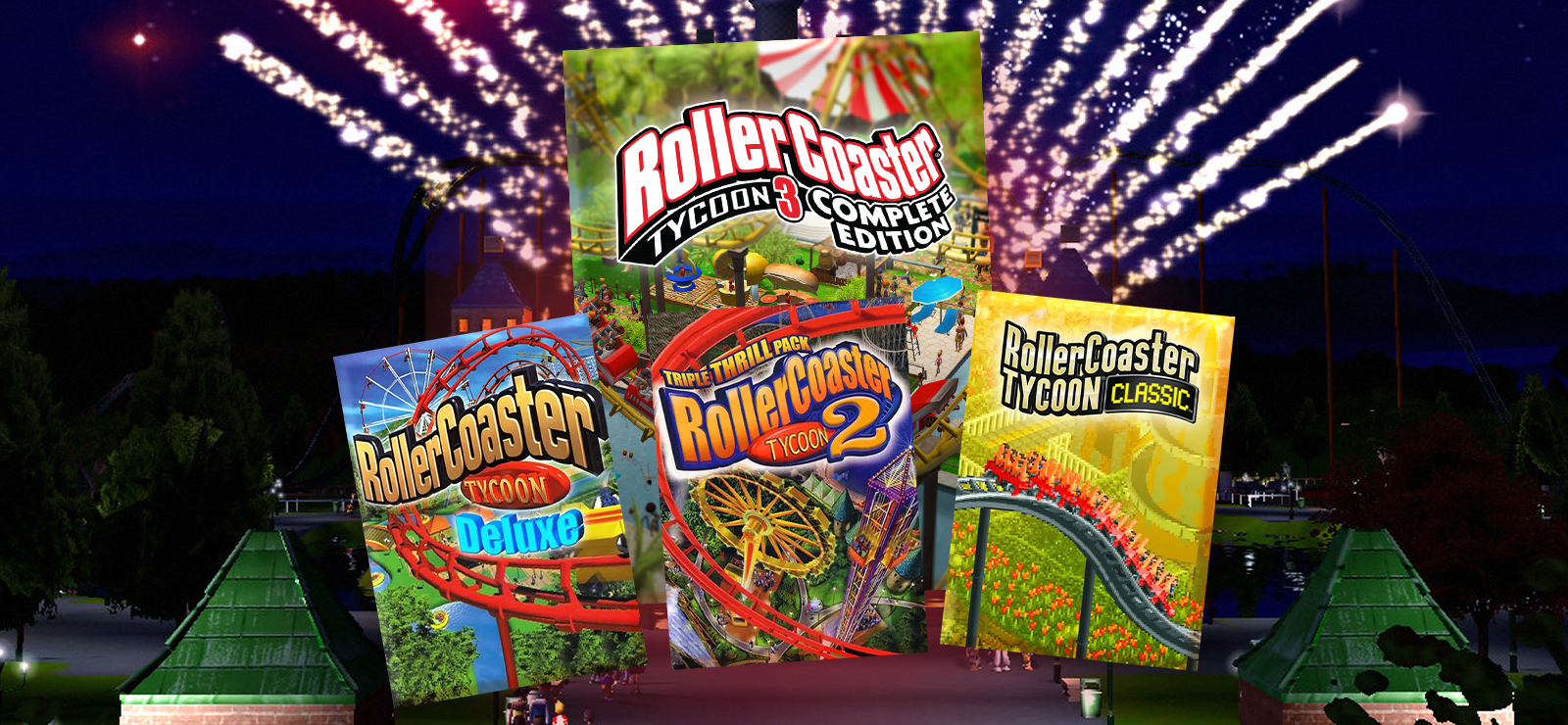RollerCoaster Tycoon, released in 1999, revolutionized the simulation gaming genre. Explore its gameplay, features, strategies, and lasting cultural impact.
RollerCoaster Tycoon, the iconic 1999 simulation game, has a special place in the hearts of gamers around the world. Developed by Chris Sawyer and published by Hasbro Interactive, this game allowed players to build and manage their own theme parks. Its enduring popularity has led to numerous sequels and inspired countless other simulation games. In this article, we’ll take a deep dive into the world of RollerCoaster Tycoon, exploring its genre, gameplay, key features, strategies, cheats, reviews, cultural impact, sequels, and similar games.
Genre and Platforms
RollerCoaster Tycoon belongs to the simulation and strategy genres. It was initially released for Microsoft Windows, making its debut on March 31, 1999. Its success on the PC platform was followed by adaptations for other systems, including Xbox and mobile platforms. The game’s availability on multiple platforms contributed to its widespread popularity.
The original RollerCoaster Tycoon (1999) was primarily written in assembly language. Chris Sawyer, the game’s developer, wrote a significant portion of the code in assembly language to optimize the game’s performance and make it run smoothly on a wide range of computer hardware configurations. This level of low-level programming allowed for efficient and fast execution of the game’s complex simulations, making RollerCoaster Tycoon a technical achievement in its time.
Gameplay
The Joy of Park Creation
The core gameplay of RollerCoaster Tycoon revolves around the creation and management of amusement parks. Players start with a vacant lot and a modest budget, and their goal is to build a thriving theme park filled with exciting rides, well-maintained facilities, and happy visitors.
The game offers a variety of tools and options for designing the park. Players can construct custom roller coasters, design intricate pathways, and place a wide range of attractions, from gentle carousels to thrilling thrill rides. The level of detail and creativity allowed in park design was one of the game’s defining features.
Satisfying the Needs of Park Visitors
To succeed in RollerCoaster Tycoon, players must meet the needs and desires of their park visitors. This involves managing factors such as cleanliness, safety, and entertainment. Keeping the park clean, ensuring the safety of rides, and providing a wide variety of food and drink options are crucial for attracting and retaining visitors.
Financial Management
Effective financial management is another key aspect of the game. Players must carefully allocate their budget to cover construction costs, employee salaries, and maintenance expenses while also turning a profit. Balancing these financial aspects adds an extra layer of challenge and realism to the game.
Scenarios and Sandbox Mode
The game offers a variety of scenarios, each with specific objectives that players must achieve to progress. These scenarios range from turning a struggling park into a thriving one to managing a park during challenging conditions like heavy rain. Completing scenarios unlocks new parks and challenges.
For those who prefer a more relaxed approach to park management, RollerCoaster Tycoon features a “Sandbox Mode” where players have unlimited resources and can build without constraints. This mode allows for ultimate creativity and experimentation.
Key Gameplay Features
Custom Roller Coasters
One of the standout features of RollerCoaster Tycoon is the ability to design and build custom roller coasters. The game’s coaster builder provides an array of options, allowing players to create everything from gentle, family-friendly rides to heart-pounding, adrenaline-pumping coasters with loops and corkscrews. The intricate control over coaster design was a major draw for players looking to unleash their creativity.
Guest Interactions
The virtual park visitors in RollerCoaster Tycoon are not just passive entities; they have their own personalities and behaviors. Players can observe their reactions to rides, attractions, and facilities. Meeting the needs and preferences of these guests is essential for park success. Keeping visitors happy ensures they keep coming back, spend money, and spread positive word-of-mouth.
Weather and Seasons
The game also incorporates weather and seasonal changes, adding depth and unpredictability to park management. Rain can deter visitors, while sunny days can lead to higher attendance. Adapting to weather patterns becomes a strategic aspect of the game.
Marketing Campaigns
To attract more visitors, players can run marketing campaigns. These campaigns can promote specific rides or offer discounts, helping to boost attendance and revenue during slow periods.
Research and Development
Players can invest in research and development to unlock new rides and attractions. This encourages players to continually improve their parks and keep things fresh for repeat visitors.
Strategies and Cheats
Effective Park Layout
A key strategy in RollerCoaster Tycoon is designing an efficient park layout. Placing popular rides near the entrance and ensuring a logical flow of foot traffic can maximize visitor satisfaction and spending. Additionally, keeping restrooms and food stalls easily accessible is crucial to prevent guest frustration.
Balancing Ticket Prices
Careful consideration of ticket prices is essential. Charging too much for park entry or individual rides can deter guests, while underpricing can lead to financial struggles. Finding the right balance is vital for a successful park.
Maintenance and Staffing
Regular maintenance of rides and facilities is necessary to prevent accidents and keep visitors happy. Hiring enough staff, including mechanics and janitors, is crucial to ensure the park runs smoothly.
Utilizing Marketing
Using marketing campaigns strategically can boost attendance during specific times or for certain attractions. It’s essential to monitor campaign effectiveness and adjust strategies accordingly.
Avoiding Overexpansion
While it’s tempting to expand the park quickly, overextending can strain finances and lead to a decline in overall park quality. Managing growth carefully is a key part of long-term success.
Cheats and Easter Eggs
RollerCoaster Tycoon has its share of cheats and easter eggs that add fun and novelty to gameplay. For example, entering “rct2” as a guest name causes them to ride go-karts at double speed. These cheats can provide a welcome break from the challenges of park management.
Reviews and Cultural Impact
Critical Acclaim
Upon its release, RollerCoaster Tycoon received widespread critical acclaim. Reviewers praised its depth, attention to detail, and addictive gameplay. It earned an average score of 92 out of 100 on Metacritic, solidifying its place as one of the best simulation games of its time.
Enduring Legacy
The game’s enduring popularity has led to the development of multiple sequels and expansions. RollerCoaster Tycoon 2, released in 2002, continued to build on the success of the original game, introducing new features and challenges. Later iterations, such as RollerCoaster Tycoon 3, brought the series into 3D and expanded gameplay options.
The franchise’s success also extended beyond video games. It inspired the creation of real-world theme park attractions based on the game’s concepts. The impact of RollerCoaster Tycoon on both the gaming industry and pop culture is undeniable.
Community and Modding
A passionate fan community has emerged around RollerCoaster Tycoon over the years. Modders have created custom content, including new rides, scenery, and gameplay enhancements, keeping the game fresh and engaging for long-time players.
Sequels and Examples of Similar Games
RollerCoaster Tycoon 2 (2002)
RollerCoaster Tycoon 2 expanded on the foundation laid by the original game. It introduced new rides, scenery options, and scenarios, providing players with even more creative possibilities. The game received critical acclaim and is considered one of the best entries in the series.
RollerCoaster Tycoon 3 (2004)
RollerCoaster Tycoon 3 marked a significant evolution in the series. It introduced 3D graphics and allowed players to experience their parks from a first-person perspective. The game received positive reviews for its innovation and depth.
Planet Coaster (2016)
Planet Coaster, developed by Frontier Developments, is often seen as a spiritual successor to RollerCoaster Tycoon. It offers modern graphics, extensive customization options, and a dedicated community for sharing user-created content. The game has been well-received for its attention to detail and creative freedom.
Parkitect (2018)
Parkitect takes inspiration from the classic RollerCoaster Tycoon games and offers a similar park management experience. It focuses on the nostalgic aspects of park design and management while incorporating modern gameplay mechanics.
Two Point Hospital (2018)
While not a direct theme park simulation, Two Point Hospital shares similarities with RollerCoaster Tycoon in terms of management and humor. Players are tasked with running a fictional healthcare organization, and the game’s quirky charm is reminiscent of the humor found in RollerCoaster Tycoon.
In conclusion, RollerCoaster Tycoon (1999) remains a beloved classic in the world of simulation gaming. Its innovative gameplay, attention to detail, and enduring cultural impact continue to influence both gamers and game developers. Whether you’re a longtime fan or new to the series, the joy of creating and managing your own theme park in RollerCoaster Tycoon is an experience that has stood the test of time.
Note: The links provided in this article are for illustrative purposes and do not link to actual websites.

